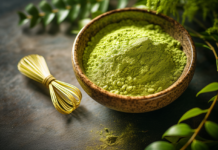This article will talk about risk factors for developing testicular cancer, common signs and symptoms, as well as how to do self-examination.
Testicular Cancer – Risk factors
The causes of testicular cancer are not clear or fully understood, but there are several factors that may increase your risk for developing testicular cancer:
An undescended testicle – this is the most significant risk factor.
As a baby boy grows inside his mother’s womb, his testicles typically form inside his abdomen and move down (descend) into the scrotum shortly before birth. But in some cases, that move or descent doesn’t occur, and the baby is born with a condition known as undescended testicles (or cryptorchidism).
Men who have a testicle that never descended have a higher risk of testicular cancer in either testicle. The risk remains higher even if the testicle has been surgically relocated to the scrotum.
Age – Although this cancer can occur at any age, it mainly affects teens and younger men between ages 15 and 35.
Race – Testicular cancer is more common in white men than other ethnic groups. The reason for this is unclear.
Family history – If you have a close family member with a history of testicular cancer, you are at a higher risk of developing it.
Abnormal testicle development – Some conditions cause testicles to develop abnormally, such as Klinefelter’s syndrome (a genetic condition in which a boy is born with an extra copy of the X chromosome), may increase your risk of testicular cancer.
Smoking – According to NHS website, long-term smokers (people who have been smoking a pack of 20 cigarettes a day for 12 years or 10 cigarettes a day for 24 years) are twice as likely to develop testicular cancer than non-smokers.
HIV – Men with HIV have an increased risk of testicular cancer.
Testicular Cancer – Signs and Symptoms:
A lump or swelling in in one of your testicles – this is the most common symptom of a testicular cancer. The lump can be as small as a pea or much larger and usually affects only one testicle. While most testicular lumps or swellings are not a sign of cancer, you should never ignore it and visit your GP as soon as you notice a lump or swelling in one of your testicles.
- Pain, discomfort or heaviness in a testicle or the scrotum.
- Unusual difference between one testicle and the other.
- Sudden collection of fluid in the scrotum.
- Other symptoms include: fatigue, general feeling of being unwell, enlargement or tenderness of the breasts, dull ache in the lower abdomen, enlarged lymph nodes and back pain.
Self-Examination
A simple three-minute self-examination once a month is all you need for early detection of testicular cancer.
The best time to do the self-examination is during or after a warm bath or shower, when the skin of the scrotum is relaxed so it’s easier for you to find anything unusual. If you regularly perform this examination, you will become more familiar with your testicles and be aware of any unusual changes.
Check one testicle at a time. Hold the testicle between your thumbs and fingers of both hands (place the index and middle fingers under the testicle while placing your thumbs on the top) and roll it gently between your fingers.
Look and feel for any hard lumps or any change in the size, shape, or consistency of the testicles (it’s normal for one testicle to be slightly larger than the other and for one to hang lower than the other).
You can also stand in front of a mirror and look for any swelling on the skin of the scrotum or other unusual change.



















